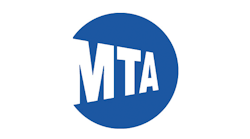MTA’s bus Open Stroller Pilot to begin Phase II
The Metropolitan Transportation Authority’s (MTA) bus Open Stroller Pilot will begin Phase II, expanding to upwards of 1,000 buses on 57 routes in all five boroughs. The second phase of the Open Stroller Program will retrofit all local and select buses operating out of six depots by fall 2023 with designated stroller spaces. The 57 local and select routes operating out of those depots served a combined 250,000 daily weekly riders in 2021 and include some of the busiest routes in the system.
Dedicated stroller space allows riders with young children to board without needing to fold their strollers first. As with the previous phase of the pilot, added stroller space on buses will be either an open space near the rear door or a space created by flipping up two side-by-side seats, depending on the bus model.
“This expansion is a win for bus customers. The Open Stroller Program has demonstrated we can make buses more accessible to all customers while providing faster, cleaner and safer service,” said New York City (NYC) Transit President Richard Davey. “As we expand, more and more bus customers will benefit from enhanced accessibility, especially for parents and caregivers. I commend the months of hard work from the team at NYC Transit and the MTA’s accessibility team to make this expansion possible.”
“Today’s announcement is the culmination of months of intensive work at the MTA to make buses more inclusive and accessible for all of our customers,” said MTA Chief Accessibility Officer Quemuel Arroyo. “By working together with our riders, advocates and bus operators who power our system, we have identified a meaningful solution to ensure that buses are more welcoming to parents and caregivers while preserving accessible space for customers with disabilities, many of whom rely on buses every day to travel throughout the city.”
“Buses provide essential transit services to hundreds of thousands of New Yorkers and any day we can make our system more inviting and accessible is a good day,” said NYC Transit Senior Vice President of Buses Frank Annicaro. “The success of this program would not be possible without the hard work of our bus operators, who have played a critical role in delivering service that is accessible and safe for all customers during the pilot.”
The bus routes that will feature an open stroller space include:
- Brooklyn: B1, B3, B6/6 LTD, B36, B64, B74
- The Bronx: Bx6, Bx6 SBS, Bx8, Bx11, Bx17, Bx19, Bx21, Bx23, Bx27, Bx31, Bx32, Bx33, Bx35, Bx36/36LTD, Bx46
- Manhattan: M15, M31, M101, M102, M103, M125
- Queens: Q12, Q13, Q15, Q15A, Q16, Q20A, Q20B, Q26, Q28, Q31, Q32, Q44 SBS, Q48, Q50LTD, Q76
- Staten Island: S40, S42, S46, S48, S51, S52, S53, S66, S76, S81 LTD, S86 LTD, S90 LTD, S93 LTD, S96 LTD, S98 LTD
The buses will run out of the following six depots:
- Eastchester in the Bronx
- West Farms in the Bronx
- Ulmer Park in Brooklyn
- Tuskegee in Manhattan
- Casey Stengel in Queens
- Castleton in Staten Island
The MTA received more than 200 customer comments on bus stroller policy through the agency’s online feedback form since the pilot started last fall. Four out of five support allowing open strollers on buses and/or expanding the pilot to more buses/routes. Customers and operators alike have reported faster and easier boarding experiences, more comfortable bus rides and more positive interactions with fellow riders on the pilot routes. In addition, bus operators on routes participating in the open stroller pilot were asked to record stroller usage, with over 4,000 stroller journeys tallied since the beginning of the pilot and no reported safety incidents or conflicts resulting from the pilot. The MTA will continue to collect robust customer and operator feedback as the pilot expands to more buses and routes.
The additional buses participating in the Open Stroller Program will be identified with a stroller decal on the outside of the bus that customers can easily see before boarding. Once inside the bus, the designated space will be identified with a similar decal.
The designated open stroller spaces are entirely separate from existing priority seating for bus riders with disabilities. A bus customer boarding with a wheelchair will still have the same number of designated spaces.





